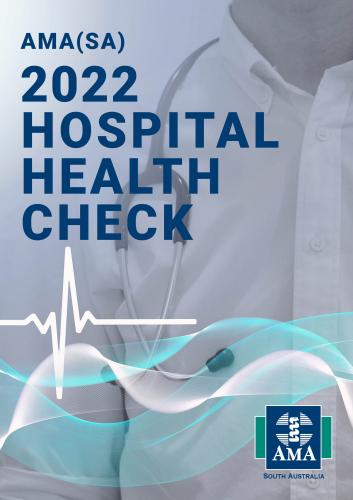Survey shows bullying of junior doctors continues
A national survey of the country’s doctors in training shows bullying and harassment are still major issues for South Australia’s junior doctors, affecting their health, professional advancement and capacity to care for their patients.

AMA(SA) Doctors in Training Committee Chair Dr Hayden Cain said the latest South Australian Hospital Health Check (HHC) data showed more than 20% of trainee doctors at each major public hospital reported having been bullied or harassed in the 12 months before they completed the survey.
Dr Cain said more than one-third of respondents reported witnessing bullying or harassment.
‘While we must acknowledge the strains that COVID-19 and the junior doctor shortage in Australia have placed on the state’s health system, we are now well past the period of lockdowns,’ Dr Cain said. ‘Still, the survey data is showing that working conditions for junior doctors are not improving.
‘Our data demonstrates that significant numbers of junior doctors – well over half of respondents at some hospitals – choose not to report bullying, either because they don’t believe there will be repercussions for the perpetrator or because they are worried about the impacts of reporting on their own careers.’
The HHC is drawn from responses to the national Medical Training Survey, which was conducted in August and September 2022. In the latest survey, 21,857 DiTs responded Australia-wide, among which 1,568, or 7%, were from South Australia.
AMA(SA) President Dr John Williams said it appeared the fear of repercussions was justified, with senior clinicians by far the most often-mentioned perpetrators. At the WCH, being bullied by senior medical staff accounted for 83% of the reported cases, followed by QEH (57%), LMH (56%), RAH (51%) and FMC (47%).
Dr Williams said issues of bullying, discrimination and harassment continue to affect junior doctors’ capacity to deliver the best care to their patients.
Dr Cain said the survey showed junior doctors continue to report that:
- Workplace issues affect their wellbeing
- There are barriers to accessing study leave
- Work rosters prevent them fulfil training requirements necessary for their progression through their training
- They are concerned that workplace conditions will affect their ability to finish their fellowships or enter their chosen specialties
- They are not provided with adequate working and learning spaces.



